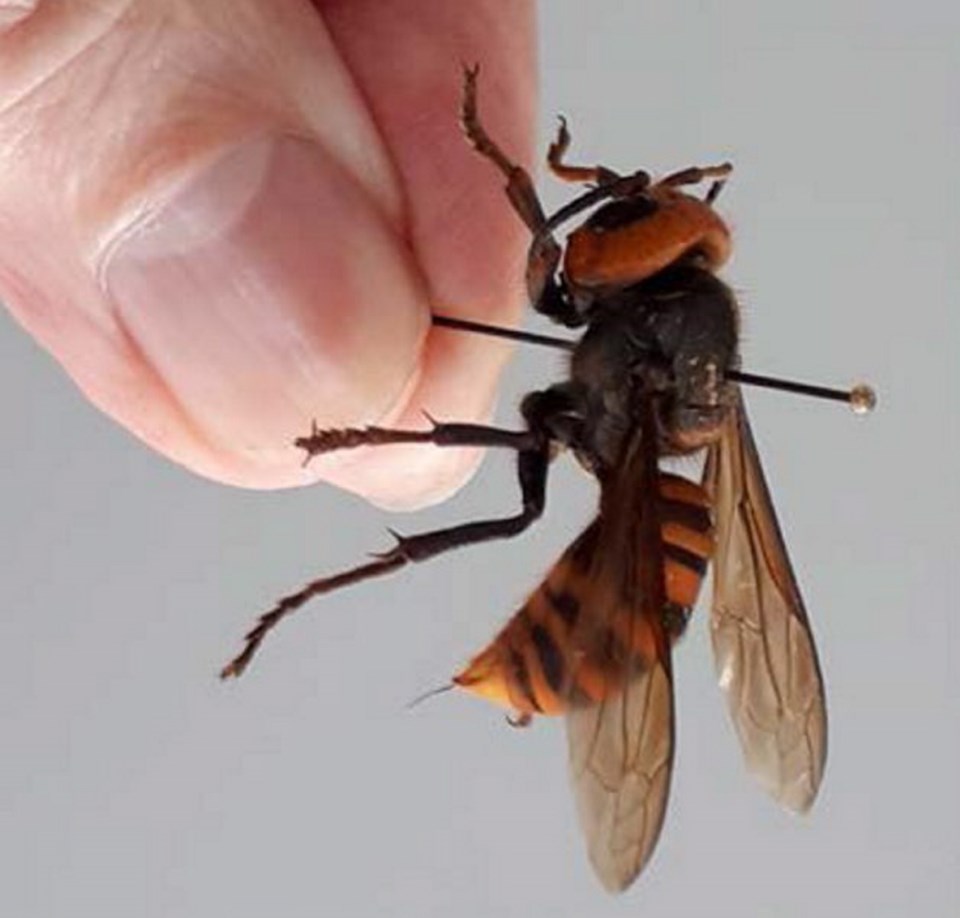A nest of Asian giant hornets was located and destroyed in Nanaimo Wednesday night, provincial officials have confirmed.
A provincial entomologist and a group of local beekeepers found the in-ground nest in the Robins Park area and eradicated the invasive insects using carbon dioxide.
The hornets and queen were removed for further testing to determine where they originated, the government said Thursday.
Asian giant hornets, which feed on honeybees, were first discovered on Vancouver Island in August when two hornets were found by a beekeeper near his hives in the Nanaimo area. A third was discovered in someone’s backyard.
The hornets can reach up to five centimetres in length with a wingspan of four to seven centimetres. They are commonly found in China, Japan and the Korean Peninsula, and it’s unclear how they came to B.C., although invasive species experts say they likely arrived through trade or travel.
The Ministry of Agriculture issued an information bulletin last week asking the public to report any other sightings.
The ministry said three additional sightings in September helped locate the nest. Officials are now investigating reports of a second nest in the same area, the government said.
Although interactions between Asian giant hornets and humans are rare, they will sting if their nests are disturbed.
Given the hornets’ size, a single sting can be painful and cause swelling, redness and itching that can be treated with ice or a cold compress.
Of more concern is the prospect of multiple stings due the toxins that are released by giant hornets, said Dr. Paul Hasselback, a medical health officer in Nanaimo. People who suffer 10 or more stings might be at increased risk of developing an allergic reaction and should seek medical attention immediately, officials say.
“If there are multiple stings in particular, that can be enough of a dose of a venom to actually lead to other medical complications,” Hasselback told the Times Colonist last week.
“So being aware of what those potential complications are to the toxin is something that we’ve tried to ensure that local practitioners are aware of.”
People who may have seen an Asian giant hornet can report findings to the Invasive Species Council of B.C. at 1 888 933-3722, or on the council’s “Report Invasives” mobile phone app.



